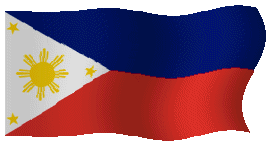Philippines
The Philippines is a unique country. It has a distinctive blend of oriental and western culture which is unparalleled anywhere else. The Filipinos are warm, friendly and outgoing people. They are quick to show hospitality to friends and strangers alike. Due to the influence of almost 400 years of Spanish control the Philippines is the only predominantly Roman Catholic nation in Asia although many of the pre-Spanish animistic practices and beliefs have been incorporated into the worship and ritual of Filipino Catholicism. The willingness of the Filipino people to accept western ideas as well as familiarity with Christian teachings has made the Philippines one of the most responsive nations to the Gospel yet at the same time the strong religious traditions have presented formidable obstacles to widespread acceptance of the message of salvation by Grace through faith in Christ.
From 1898 to 1946 the Philippines was controlled by the United States and the American influence is quite apparent in Philippine society.
The nation is made up of over 7,000 islands located in the South China Sea north of Malaysia and Indonesia and 500 miles west of Vietnam and Southern China. The islands are mostly mountainous with dozens of active volcanoes scattered throughout. The country is divided into 3 major geographic regions. In the north is Luzon, the largest of all the islands of the Philippine archipelago, where Manila is located. Most of the industry and manufacturing is in Luzon. The central region is called the Visayan Islands. Cebu, the second largest city and a trading and business center is in the heart of the Visayan region. In the south is the Island of Mindanao which is an area of vast natural resources and great potential. Mindanao is where most of the Muslim Filipinos live. Davao is the largest and most important city in Mindanao and is an important trading, industrial, and agricultural center.
There are over 75 languages and dialects spoken in the Philippines. The major ones are Tagalog, Cebuano, Ilocano, Ilongo and Bicolano. English is also spoken and understood by many Filipinos. The economy is based on agriculture and industry. The staple food is rice and the Philippines is the largest producer of coconuts and coconut products. Industrial products include textiles, steel, fertilizers and handicrafts. Most of the Filipino people are poor. Political instability and natural disaster have hampered economic development. Recently the Philippines has experienced relative peace and secure government which has helped to maintain a number of years of high economic growth.
TCM History
In the late 1950’s several Filipino Christian men answered advertisements placed in a Christian magazine by Herbert Palmer, the founder of THINGS TO COME MISSION. These men were sent Bible Study literature which explained dispensational truth and the uniqueness of the Gospel message entrusted to the Apostle Paul. Desiring to learn more, these men requested that a missionary be sent to the Philippines to teach the Bible and to help evangelize and establish churches.
Vernon and Darlene Anderson were the first missionaries to respond to the request in 1958. They were followed several months later by Joe and Pauline Watkins and other missionaries over the following years.
In 1959 TCM started INTERNATIONAL GRACE BIBLE INSTITUTE as a training center to prepare Filipinos for ministry in the churches which were being rapidly established throughout the country. The establishment of churches and the training of national leaders has always been the main thrust of TCM’s ministries and IGBI has served as an integral part of that strategy for over thirty years. Each year, pastors, evangelists, and Bible teachers have gone out from the school to help reach the Filipino people with the Gospel. Several graduates of TCM’s Philippine Bible Institutes have gone out as missionaries to other countries such as Kenya, Brazil, and Indonesia.
Throughout the years TCM has expanded the scope of its ministry to use a variety of methods to proclaim the Gospel in the Philippines. This includes translated and original literature, radio broadcasts, children’s outreach, youth ministry, elders training centers, crusade evangelism and others. The main purpose for all of these methods is to aid in the proclamation of the Gospel and the establishment of God-honoring, doctrinally sound, self-sustaining churches with capable and committed Filipino leadership.

